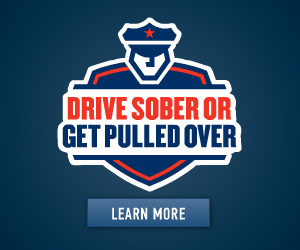DUI / DWI / Impaired Driving
316.193 Driving under the influence of alcohol or drugs
A person is guilty of the offense of driving under the influence and is subject
to punishment if the person is driving or in actual physical control of a vehicle within this state and:
(a) The person is under the influence of alcoholic beverages, any chemical substance
set forth in § 877.111, or any substance controlled under chapter 893, when affected to
the extent that the person’s normal faculties are impaired;
(b) The person has a blood-alcohol level of 0.08 or more grams of alcohol per 100 milliliters
of blood; or
(c) The person has a breath-alcohol level of 0.08 or more grams of alcohol per 210 liters
of breath.
Florida Statutes
316.193 D.U.I.- DRIVING UNDER THE INFLUENCE
316.193 (1) DUI (Misdemeanor)
316.193 (2)(b)1 DUI 3rd violation within 10 years (Felony)
316.193 (2)(b)2 DUI 3rd violation more than 10 years (Misdemeanor)
316.193 (2)(b)3 DUI 4th or subsequent offense (Felony)
316.193 (3)(c)1 DUI - Property Damage/Personal Injury (Misdemeanor)
316.193 (3)(c) 2 DUI - Serious Bodily Injury (Felony)
316.193 (3)(c) 3 DUI - Manslaughter (Felony)
316.193 (3)(c)3(a) DUI - Cause death to human or unborn child (Felony)
316.193 (3)(c)3(b) DUI - Cause death fail to give info/render aid (Felony)
316.1936(2) OPEN CONTAINER/OR CONSUMPTION of ALCOHOL IN / ON VEHICLE (Driver cited) (Non-criminal)
316.1936 (2) OPEN CONTAINER/OR CONSUMPTION of ALCOHOL IN / ON VEHICLE (Passenger cited) (Non-criminal)
316.1936 (2)(a) Possession of open container in motor vehicle (Driver cited) (Non-criminal)
316.1936 (2)(a) Possession of open container in motor vehicle (Passenger cited) (Non-criminal)
316.1936 (2)(b) Possession of open container parked vehicle (Driver cited) (Non-criminal)
316.1936 (2)(b) Possession of open container parked vehicle (Passenger cited) (Non-criminal)
316.1939 (1)(e) Refuse to Submit to BAL test (previously refused only) (Misdemeanor)
Driving under the influence (DUI), also known as driving while intoxicated (DWI),
is the crime of driving a "Motor vehicle" while impaired by alcohol or other drug
including those prescribed by physicians, to a level that renders the driver incapable
of operating a motor vehicle safely. The name of the offense varies from jurisdiction
to ion and from legal to colloquial terminology. Other terms include: drink-driving
drunk driving drunken driving impaired driving,ope,rating under the influence, drinking and driving.
With alcohol, a drunk driver's level of intoxication is typically determined by a measurement
of blood alcohol contentor BAC. A BAC measurement in excess of a specific threshold level,
such as 0.05% or 0.08%, defines the criminal offense with no need to prove impairment.
In some jurisdictions, there is an aggravated category of the offense at a higher BAC level,
such as 0.12%.
In most countries, anyone who is convicted of injuring or killing someone while under the
influence of alcohol or other drugs can be heavily fined in addition to being given a prison
sentence. DUI and alcohol-related crashes produce an estimated $45 billion in damages every year.
Note: the term "drugs" applies to legal or illegal drugs or substances. The term "vehicle" includes all types such as bicycles, tricycles, mowers, boats, airplanes, etc...
 >
>
DUI Checkpoints
Arguments whether checkpoints are legal or not were encountered in the United States
Supreme Court. In Michigan Department of State Police v. Sitz, upheld the constitutionality
of sobriety checkpoints. Other attributes to take in account is the stopping of the vehicles,
In Delaware v. Prouse, 440 U.S. 648 (1979), the U. S. Supreme Court ruled that stopping all
cars would be an acceptable method of conducting spot checks. In a concurring opinion, Justice
Blackmun (joined by Justice Powell) added that other methods would also be acceptable,
such as stopping every tenth car that passes a given point. If every vehicle is not stopped,
the method used to determine which ones will must appear in the administrative order
authorizing the use of the sobriety checkpoint.
A sobriety checkpoint may conduct a systematic measure; therefore, not
every vehicle will be stop. But different aspects in conducting a checkpoint is up for
dispute. In a video by Attorney Warren Redlich may place confusion when dealing with a police
officer at a DUI checkpoint. He argued the officer did not give him a lawful order; instead,
he was only asked to lower down the window. Such move resulted in his arrest for obstruction
of justice but was later released with a ticket for failure to display/present his driver’s
license and the knowledge that charges may be pending upon the discretion of the state
attorney’s office. Whatever the case may be, it is not recommended to perform or attempt
Attorney Redlich’s actions.
